Rob Bignell's Blog, page 259
June 3, 2016
How to make your press release newsworthy
Some  mainstream media will ignore your release because they deem it as less news than an advertisement for your product. Indeed, an announcement that your book will be released or that it has been released usually won���t cut it.
mainstream media will ignore your release because they deem it as less news than an advertisement for your product. Indeed, an announcement that your book will be released or that it has been released usually won���t cut it.
When writing your press release about your book, you need to identify a ���news peg,��� that is, establish what makes your story newsworthy. There are a lot of different approaches you can take with the press release to ensure it has a news peg:
��� Local connection ��� Media want to hear about what���s happening to people in their circulation or broadcast area. Emphasize your residency there or another connection, such being a graduate of a local high school or college. Or perhaps the book highlights local people, places or the history.
��� Upcoming event ��� Rather than announce your book has been released, instead focus on an event, such as a bookstore hosting your reading of your newly released book. The event should occur within the media���s circulation or broadcast area, of course.
��� Unique and interesting story ��� A story that will get readers talking at the water cooler always is welcomed, so long as it has a local connection. For example, if you wrote a book about homelessness and spent a week living moneyless on the street as part of the research, you���ll garner some attention from the press, especially in the city where you were ���homeless��� for a week.
��� Ties into the season ��� Look for a way that your book connects to a particular time of the year when interest in specific topics is high. For example, golfing guidebooks will be popular in spring once courses reopen across the North, a Christmas-oriented novel will go over well in December, a Revolutionary War history book will grab attention at the Fourth of July, etc. Again, a local connection strengthens your appeal.
As each media has a slightly different circulation or broadcast area, you may need to tailor your press release to each outlet. For example, if you wrote a book about kayaking routes in the Upper Midwest, your press release sent to Minneapolis media should emphasize those routes in Minnesota while those sent to Chicago media would emphasize Illinois, northwest Indiana, and southeast Wisconsin.
Finally, don���t mention that your book is self-published. Newsrooms are conservative in nature and still view the old way of publishing with editors as information gatekeepers to be the ���proper��� way of publishing (since that���s how they still operate) and so many will dismiss your book with a ���Wasn���t good enough to get a publisher to print it, eh?��� They don���t need to know that ���Rushing River Press, Purveyors of Fine Kayaking Guidebooks��� is your own company, and frankly most readers wouldn���t care either way.
Professional Book Editor: Having your novel, short story or nonfiction manuscript proofread or edited before submitting it can prove invaluable. In an economic climate where you face heavy competition, your writing needs a second eye to give you the edge. I can provide that second eye.
<A HREF="http://ws-na.amazon-adsystem.com/widg... Widgets</A>
Related articles
 Editing tip: Learn some literary devices
Editing tip: Learn some literary devices What are 'book specs' on a press release?
What are 'book specs' on a press release? Utilize online storefronts to promote your book
Utilize online storefronts to promote your book Promote your book for free on various websites
Promote your book for free on various websites
June 2, 2016
How to improve quality, sales of your next book
There���s no 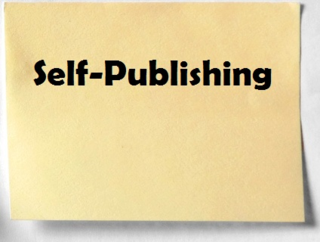 doubt that marketing and the quality of a book���s content go hand-in-hand where book sales are concerned. Yes, marketing can turn a bad book into a success and clearly a lack of marketing can mean a great book goes unnoticed. But at least in the case of the former, even a bad book eventually will suffer as customer reviews pile up against it.
doubt that marketing and the quality of a book���s content go hand-in-hand where book sales are concerned. Yes, marketing can turn a bad book into a success and clearly a lack of marketing can mean a great book goes unnoticed. But at least in the case of the former, even a bad book eventually will suffer as customer reviews pile up against it.
And yes, one can write a book that fits what marketing research says will sell, boosting your sales, or you can ignore it, write the book you are passionate about, and see it languish. The former, however, often results in cookie cutter stories and hackwork.
There is a way to use marketing research to improve your writing and to increase your sales, however. In doing so you won���t sacrifice your principles either.
How?
Go to Amazon.com and to Goodreads then identify other books similar to yours. Don���t look at their covers or blurbs, because you���re not trying to be a copycat of what they do. What you want to determine is what their readers ��� who also are your readers ��� liked and disliked about those books.
Do that by reading the reviews. Identify what readers appreciated about your competition���s books. Such qualities (for a nonfiction book) probably are words like ���written in conversational tone,��� ���well-organized,��� and ���lots of interesting anecdotes.��� Make a list of those qualities, checking off the ones they are repeated.
Do the same for what the reviewers disliked about the books. Such criticisms might be, ���very dry, dull writing style,��� ���poorly organized,��� and ���very impersonal tone.���
Now consider your book. Do you do those things that readers like? If not, start doing them in your book. Do you do those things that readers dislike? Then stop doing them in your next book!
When you write the blurb for your next book, emphasize that your book possesses those traits or content that you identified reviewers liking. Add that to your press releases and social media efforts.
What will be the result? Your book will gain a reputation as well-written and meeting the needs of your readers. That can only lead to more sales!
Professional Book Editor: Having your novel, short story or nonfiction manuscript proofread or edited before submitting it can prove invaluable. In an economic climate where you face heavy competition, your writing needs a second eye to give you the edge. I can provide that second eye.
<A HREF="http://ws-na.amazon-adsystem.com/widg... Widgets</A>
Related articles
 Sales advantages of writing nonfiction books
Sales advantages of writing nonfiction books Do Kindle DP pre-orders help or hinder sales?
Do Kindle DP pre-orders help or hinder sales?
June 1, 2016
When to spell out numbers in a book
Grammar 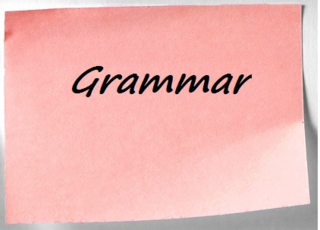 rules about when to spell out whole numbers (one, two, three) and when to use numerals (1, 2, 3) vary greatly from publishing house to publishing house. It���s really a matter of style.
rules about when to spell out whole numbers (one, two, three) and when to use numerals (1, 2, 3) vary greatly from publishing house to publishing house. It���s really a matter of style.
Most do agree that we should spell out numbers zero through nine. Most also agree that all negative numbers should take numerals (-1, -2, -3).
The disagreement primarily is over numbers larger than nine. The Associated Press Stylebook calls for using numerals (10, 11, 12, 100) while The Chicago Manual of Style says to spelling out numbers up to and including 100 (ten, eleven, twelve, one hundred) also is fine, giving you the option to choose between two styles.
A number of exceptions exist to these basic rules, most obviously when a number starts a sentence (then always spell out the number) or when giving addresses (then always use numerals).
Your best option is to consult with your publishing house for a list of their style rules using numbers. If you���re self-publishing, adopt either AP or Chicago style and then be consistent in following it.
Professional Book Editor: Having your novel, short story or nonfiction manuscript proofread or edited before submitting it can prove invaluable. In an economic climate where you face heavy competition, your writing needs a second eye to give you the edge. I can provide that second eye.
<A HREF="http://ws-na.amazon-adsystem.com/widg... Widgets</A>
Related articles
 Word in transition: Co-worker vs. coworker
Word in transition: Co-worker vs. coworker Spell as you speak? Miniscule vs. minuscule
Spell as you speak? Miniscule vs. minuscule What are 'The Big Six' book publishers?
What are 'The Big Six' book publishers?
May 31, 2016
Four writing prompts: Guilt
Good stories 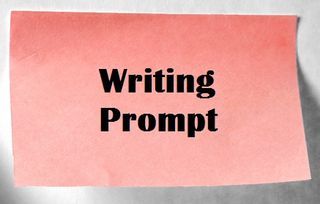 center on the clashing of characters��� goals and motivations. Sometimes a character���s goals and motivations arise from feelings of having done something wrong. Here are four writing prompts for stories that center on guilt.
center on the clashing of characters��� goals and motivations. Sometimes a character���s goals and motivations arise from feelings of having done something wrong. Here are four writing prompts for stories that center on guilt.
Man vs. man
Our main character doesn���t want to help someone he has responsibility for but at the same time feels guilt over these inner feelings of resentment or disinterest. How does he cope with the person who needs help, and how does he resolve his issues of guilt?
Man vs. society
The hero when a younger man committed a vile act, on behalf of his organization/government that he has felt guilt about for years. He���s been able to suppress it, but one day another young man he knows (maybe someone he has trained) is asked to commit the same attrocity. How does our hero prevent this young man from doing so, and how does he survive bucking a system that care little for his individual psyche?
Man vs. God(s)
What if our protagonist comes to believe that the faith he grew up in is causing his guilt and shame rather than offering him solace from it? What event (perhaps a sin?) precipitated this belief? How does he struggle with those of his faith and God, and how does he ultimately resolve his conflict with them?
Man vs. himself
The main character dealing with personal guilt for a bad, injurious choice he once made, finds a victim of a crime that parallels his. The discovery of this victim makes his guilt so unbearable that he must atone for it to set his world right. How does he go about coping with his guilt and making it right so he can live with himself?
Professional Book Editor: Having your novel, short story or nonfiction manuscript proofread or edited before submitting it can prove invaluable. In an economic climate where you face heavy competition, your writing needs a second eye to give you the edge. I can provide that second eye.
<A HREF="http://ws-na.amazon-adsystem.com/widg... Widgets</A>
Related articles
 Lit term 'man vs. man' isn't gender specific
Lit term 'man vs. man' isn't gender specific Avoid writing schizophrenic story
Avoid writing schizophrenic story Don't underserve a character in story
Don't underserve a character in story
May 30, 2016
Give your character a distinctive voice
In school,  we���re often taught to write with a very academic-oriented voice, one that is grammatically correct, structurally logical, and in a tone that is easy to follow but not overly conversational. While that���s perfect for writing term papers, when this translates to our fiction, it can be anathema. What typically happens is that the protagonist���s voice sounds bland, as if he���s, well, reciting a nicely-written term paper���
we���re often taught to write with a very academic-oriented voice, one that is grammatically correct, structurally logical, and in a tone that is easy to follow but not overly conversational. While that���s perfect for writing term papers, when this translates to our fiction, it can be anathema. What typically happens is that the protagonist���s voice sounds bland, as if he���s, well, reciting a nicely-written term paper���
Especially if the protagonist is narrating the story, his voice must stand out. It must be distinct and intriguing. The reader should want to follow that character not just to see how he solves the story���s problem but because the character, through his voice, is interesting.
Consider a couple of the most famous, distinctive voices in literature:
���You don't know about me without you have read a book by the name of ���The Adventures of Tom Sawyer;��� but that ain't no matter. That book was made by Mr. Mark Twain, and he told the truth, mainly. There was things which he stretched, but mainly he told the truth.��� ��� Huckleberry Finn (���The Adventures of Huckleberry Finn,��� Mark Twain)
���Oh it was gorgeousness and gorgeosity made flesh. The trombones crunched redgold under my bed, and behind my gulliver the trumpets three-wise silverflamed, and there by the door the timps rolling through my guts and out again crunched like candy thunder. Oh, it was wonder of wonders. And then, a bird of like rarest spun heavenmetal, or like silvery wine flowing in a spaceship, gravity all nonsense now, came the violin solo above all the other strings, and those strings were like a cage of silk round my bed. Then flute and oboe bored, like worms of like platinum, into the thick thick toffee gold and silver. I was in such bliss, my brothers.��� ��� Alex (���A Clockwork Orange,��� Anthony Burgess)
Giving your character a distinctive voice involves weaving together a number of elements.
The character should select words and use them in a cadence that is different from other characters. Huckleberry Finn uses words like ���but that ain���t no matter��� while Alex strings his made-up words together into an almost epic feel.
This word selection and cadence should match the tone of the character���s core personality. Huckleberry Finn, for example, is matter-of-fact in a boyish way while Alex sounds like he���s high or strung out.
Of course, the character���s emotional state may change throughout the book, but it always should be done from a certain reference point, namely the character���s core personality. Huckleberry Finn can show delight and despair, but he does so in a matter-of-fact way; Alex can show anger and boredom, but he always will sound strung out when expressing those feelings.
Lastly, remember to make the character���s voice plausible. A reader easily can imagine a boy like Huck Finn. And while Alex���s voice might initially surprise the reader, it���s believable.
Professional Book Editor: Having your novel, short story or nonfiction manuscript proofread or edited before submitting it can prove invaluable. In an economic climate where you face heavy competition, your writing needs a second eye to give you the edge. I can provide that second eye.
&amp;lt;A HREF="http://ws-na.amazon-adsystem.com/widg... Widgets&amp;lt;/A&amp;gt;
Related articles
 Writing inspiration: Model a story
Writing inspiration: Model a story Create intimatcy with narrator via first-person
Create intimatcy with narrator via first-person How formal should be your novel's voice?
How formal should be your novel's voice?
May 29, 2016
Five Great Quotes about the Business of Writing
���Write only 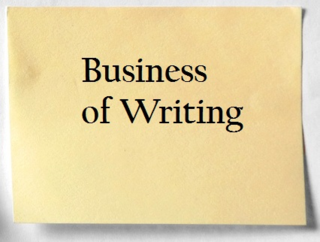 if you cannot live without writing. Write only what you alone can write.��� - Elie Wiesel
if you cannot live without writing. Write only what you alone can write.��� - Elie Wiesel
���If you wrote something for which someone sent you a check, if you cashed the check and it didn���t bounce, and if you then paid the light bill with the money, I consider you talented.��� - Stephen King
���There was a moment when I changed from an amateur to a professional. I assumed the burden of a profession, which is to write even when you don���t want to, don���t much like what you���re writing, and aren���t writing particularly well.��� - Agatha Christie
���An author who gives a manager or publisher any rights in his work except those immediately and specifically required for its publication or performance is for business purposes an imbecile.��� - George Bernard Shaw
���There���s no such thing as ���no market���. Some books are just niche orientated that���s all.��� - Jo Linsdell
Professional Book Editor: Having your novel, short story or nonfiction manuscript proofread or edited before submitting it can prove invaluable. In an economic climate where you face heavy competition, your writing needs a second eye to give you the edge. I can provide that second eye.
&amp;amp;amp;lt;A HREF="http://ws-na.amazon-adsystem.com/widg... Widgets&amp;amp;amp;lt;/A&amp;amp;amp;gt;
Related articles
 Five Great Quotations about the Writing Process
Five Great Quotations about the Writing Process Five Great Quotations about Bad Writing
Five Great Quotations about Bad Writing Five Great Quotations about Editors
Five Great Quotations about Editors
May 28, 2016
Start your story in middle to increase suspense
An old 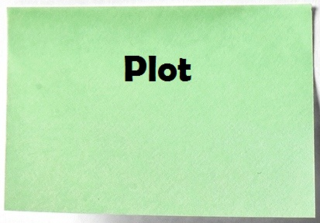 but apt writing adage goes ���Start your story in the middle.��� That is, rather than give background information about how the story���s main conflict came to be, instead start it by dropping the reader right into the hornet���s nest.
but apt writing adage goes ���Start your story in the middle.��� That is, rather than give background information about how the story���s main conflict came to be, instead start it by dropping the reader right into the hornet���s nest.
Some writers consider this disorienting and so avoid it. While that may true of young readers, almost anyone who���s at least a teenager has read or seen acted out so many stories that they won���t be confused. If anything, the uncertainty will make them read on to find out what���s happening.
For example, starting a story in which a naval ship comes upon a sister craft that has mysteriously been attacked is more interesting than starting with exposition about the search for it. Yes, the ���story��� technically began with receiving orders from the admiralty to look for the ship, but rarely does anything that���s particularly interesting occur during the search (Unless your story is about the search itself, of course). Given this, starting the story at the moment that the crew sees the listing ship can be emotionally evocative and set in motion a lot of action, conflict and suspense as the rescue gets underway. This likely is more important in a short story than a novel.
Readers will learn what is going on, who the main characters are, and the setting as this action unfolds. Not only is that a more economical way to deliver what otherwise would be considered exposition, it���s also more interesting.
More tips on writing great story openers:
��� Draw readers into story with great opening lines
��� Focus on conflict in story's opening lines
Professional Book Editor: Having your novel, short story or nonfiction manuscript proofread or edited before submitting it can prove invaluable. In an economic climate where you face heavy competition, your writing needs a second eye to give you the edge. I can provide that second eye.
<A HREF="http://ws-na.amazon-adsystem.com/widg... Widgets</A>
Related articles
 How many words is a novella?
How many words is a novella? Writing Inspiration: Explore then strive
Writing Inspiration: Explore then strive Writing inspiration: Read your favorite author
Writing inspiration: Read your favorite author
May 27, 2016
Build audience for your book before its release
The key  to successful marketing begins long before you actually publish your first book. This should be done to build an audience for your book, so once it���s released you have some potential readers and buyers who can give it traction on a bestsellers chart at Amazon.com and who can potentially write some reviews of it. After you���ve sent off the manuscript to be edited or formatted, use the down time to develop this promotional material.
to successful marketing begins long before you actually publish your first book. This should be done to build an audience for your book, so once it���s released you have some potential readers and buyers who can give it traction on a bestsellers chart at Amazon.com and who can potentially write some reviews of it. After you���ve sent off the manuscript to be edited or formatted, use the down time to develop this promotional material.
Begin with a blog. This is your ���headquarters��� from which you make forays into other social media. It also provides a place for other Internet travelers interested in your book topic to stop at. Make the blog not about your book but about your book���s topic. So, if you wrote a novel about a Beatles fan, make the blog about the Beatles. If you wrote a nonfiction book about the history of SETI (the Search for Extraterrestrial Life), make the blog about the broader topic of astrobiology. Aim to write 2-3 blog entries a week, always published at the same day and time each week.
After you���ve written a few blog entries, start working with other social media. Generally, the big social media players that you���ll want to eventually use include Twitter, Goodreads, LinkedIn, Facebook, Google+, Pinterest and Instagram. Don���t overwhelm yourself by doing all of them. Instead select the one that best matches what your book will be about. If you wrote a novel, for example, do Goodreads first. If you wrote a book about running or leading a business, go with LinkedIn. If you wrote a travel guidebook, opt for Pinterest or Instagram.
Suppose you go with Twitter first. Once you���ve set up your Twitter page, tweet your blog entries, retweet other people���s tweets that relate to your book���s topic, and (most importantly) follow those people whose tweets you���ve retweeted. By doing this, you���ll soon see your list of followers as well as visitors to your blog grow. Spend just five minutes a day doing this.
After a couple of weeks, add another social media site to your repertoire. Follow the same process as you did with Twitter ��� post entries about your blog, repost others��� posts, and follow or friend those people you���ve reposted. If Goodreads wasn���t your first social media selection to try, I���d recommend making it No. 2; if Goodreads was No. 1, go with Twitter here. Again, limit yourself to just five minutes a day.
In a couple of weeks after that, expand to a new social media site, and keep repeating this process until you���re using all of the social media that you think will work for you.
Once your book is about to be released, use your blog to announce it. Don���t turn your blog into nothing more than ad for your book, however; just weave in entries about the book among other entries about the blog���s broader topic. When the book is released, announce it again on your blog. If you utilize free promotions and other efforts at Kindle or Goodreads, announce those as well. These blog entries about your book are then shared with your friends and followers that you���ve built up on your social media sites.
When the book is released, you should seriously consider simultaneously launching a website, which tells about you the book, about you the author, has links to all of your social media sites (readers have their favorites) including your blog, and perhaps add an excerpt from your book or an interviews with you the author. There���s no need to create a website that tells about a book that hasn���t been released, though you���ll want to develop it in advance of that date.
Once the book is out, then you can go on the next step of sending press releases to traditional media and other bloggers, as well as setting up book readings/signings. Again, you���ll want to create those materials before the release date, but they don���t go out to the public until you���ve released the book.
Professional Book Editor: Having your novel, short story or nonfiction manuscript proofread or edited before submitting it can prove invaluable. In an economic climate where you face heavy competition, your writing needs a second eye to give you the edge. I can provide that second eye.
<A HREF="http://ws-na.amazon-adsystem.com/widg... Widgets</A>
Related articles
 Hold contest to get more reviews of your book
Hold contest to get more reviews of your book How to best use hashtags on Pinterest
How to best use hashtags on Pinterest What is a 'platform' when promoting a book?
What is a 'platform' when promoting a book?
May 26, 2016
You���ve self-published? You're a sole proprietor!
The moment 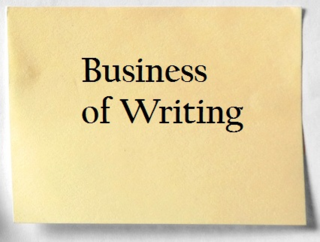 you���ve self-published a book ��� presuming you���ve done nothing else to set up your business ��� you���re a sole proprietor. That���s right, you���ve started your own business, ipso facto!
you���ve self-published a book ��� presuming you���ve done nothing else to set up your business ��� you���re a sole proprietor. That���s right, you���ve started your own business, ipso facto!
A sole proprietor is someone who is the lone owner of an unincorporated business. A sole proprietorship is the business itself. It���s the most common structure for a business, especially when a person decides to work for himself.
By self-publishing a book, as an author you are now selling a product (your book). You earn money from sales, and you conduct several business-related activities ��� creating the product (writing and formatting), distributing your product (probably via Amazon.com) and attempting to generate sales (by marketing your title via social media or book readings).
You are not an employee of your proprietorship; you are the business owner. Because of this, you don���t pay payroll taxes or withhold income tax. BUT you do have to pay self-employment taxes (i.e. Social Security and Medicare taxes). This usually is paid four times a year by estimating your taxes.
As a self-proprietor, you are personally liable for all of your business��� debts. If your business owe a person or a company money, whoever you���re indebted to can go after your personal assets, meaning your personal checking account, your car, your house. Further, if you personally owe a creditor, they can go after your business assets, including your business bank accounts and computer.
Likewise, you also are personally liable for any business-related lawsuits. Copyright infringement issues particularly can be a concern.
On the upside, being a sole proprietor carries very little costs in terms of government fees and licensing (After all, you become one probably without even realizing it). It also means you���re your own boss (at last!).
Professional Book Editor: Having your novel, short story or nonfiction manuscript proofread or edited before submitting it can prove invaluable. In an economic climate where you face heavy competition, your writing needs a second eye to give you the edge. I can provide that second eye.
<A HREF="http://ws-na.amazon-adsystem.com/widg... Widgets</A>
Related articles
 Obtain DBA if creating your own imprint
Obtain DBA if creating your own imprint Does a self-published author need to incorporate?
Does a self-published author need to incorporate? Self-published authors may need EIN
Self-published authors may need EIN
May 25, 2016
No hyphen needed in ���goer��� words
An often 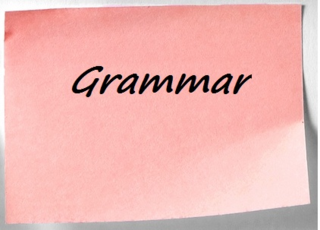 confused hyphen rule is whether or not one should be placed before goer, as in concert-goer.
confused hyphen rule is whether or not one should be placed before goer, as in concert-goer.
While various house publishing rules differ, I���m of the belief that punctuation marks ought to be eliminated whenever they can. Too many such marks tends to slow readers��� ability to work their way through a sentence, like speed bumps in a parking lot.
Given this, I always advise following The Associated Press Stylebook���s rule, which says no hyphen.
CORRECT: concertgoer, moviegoer, partygoer, theatergoer
INCORRECT: concert-goer, movie-goer, party-goer, theater-goer
There is another issue at hand here ��� words with goer at the end often read strangely, whether in print or said aloud. But that���s just a matter of personal taste, and goer words appear to be here to stay, as they���re less clunky than saying those who attended the concert.
Professional Book Editor: Having your novel, short story or nonfiction manuscript proofread or edited before submitting it can prove invaluable. In an economic climate where you face heavy competition, your writing needs a second eye to give you the edge. I can provide that second eye.
<A HREF="http://ws-na.amazon-adsystem.com/widg... Widgets</A>
Related articles
 Stretching your knowledge: warm-up vs warm up
Stretching your knowledge: warm-up vs warm up How to properly use a semicolon (wink, wink)
How to properly use a semicolon (wink, wink) Word in transition: Co-worker vs. coworker
Word in transition: Co-worker vs. coworker



